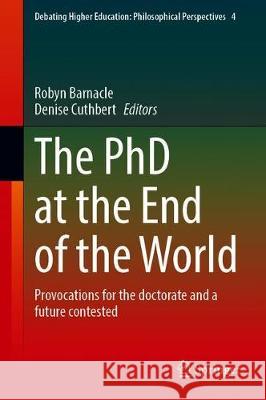The PhD at the End of the World: Provocations for the Doctorate and a Future Contested » książka
topmenu
The PhD at the End of the World: Provocations for the Doctorate and a Future Contested
ISBN-13: 9783030622183 / Angielski / Twarda / 2021 / 212 str.
The PhD at the End of the World: Provocations for the Doctorate and a Future Contested
ISBN-13: 9783030622183 / Angielski / Twarda / 2021 / 212 str.
cena 402,53
(netto: 383,36 VAT: 5%)
Najniższa cena z 30 dni: 385,52
(netto: 383,36 VAT: 5%)
Najniższa cena z 30 dni: 385,52
Termin realizacji zamówienia:
ok. 16-18 dni roboczych.
ok. 16-18 dni roboczych.
Darmowa dostawa!
Kategorie:
Kategorie BISAC:
Wydawca:
Springer
Seria wydawnicza:
Język:
Angielski
ISBN-13:
9783030622183
Rok wydania:
2021
Wydanie:
2021
Numer serii:
000830176
Ilość stron:
212
Waga:
0.49 kg
Wymiary:
23.39 x 15.6 x 1.42
Oprawa:
Twarda
Wolumenów:
01
Dodatkowe informacje:
Wydanie ilustrowane











